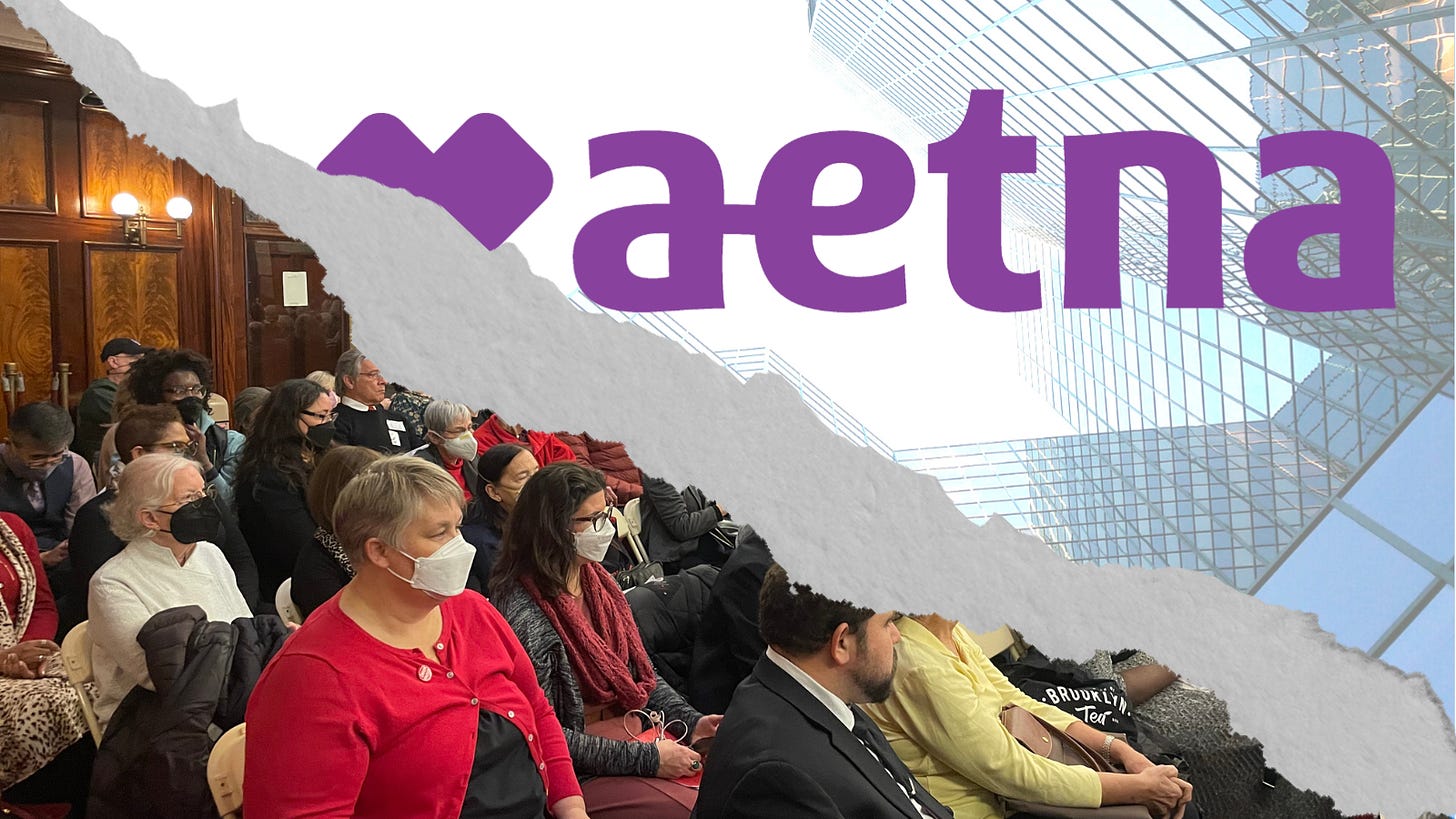

Discover more from HEALTH CARE un-covered
NYC mayor’s misguided and dangerous plan to move city retirees into a private Medicare replacement plan dealt another blow
New York City municipal retirees have scored another victory in their ongoing fight against Mayor Eric Adams’ plan to move them into a private Medicare replacement plan, which thousands of retirees are resisting.
The New York City Council was scheduled to vote tomorrow on a measure that would determine whether hundreds of thousands of current and future municipal retirees will be able to get the medical care their doctors know they need. But today the Council’s Civil Service and Labor Committee said it would not schedule the bill for a vote tomorrow after all.
This setback for the mayor is a win for the retirees – and the city’s finances if the city fulfills its mandated responsibilities as a fiduciary of employees' and retirees' money.
As I wrote last week, hundreds of retirees packed Council chambers during a January 9 committee meeting to protest the Mayor’s plan. I testified on their behalf, alongside the leaders of the opposition.
The overwhelming pushback clearly had an impact on Council members. The bill reportedly was removed from tomorrow’s agenda because the sponsor did not have the votes to pass it.
If the bill had been approved, it would have given Council’s blessing to Adams’ plan to move retirees into an Aetna Medicare Advantage plan with many strings attached, including enabling Aetna, not doctors, to make the final call on many medical procedures and medications, limiting patients’ access to their preferred health care providers, requiring referrals, and potentially exposing patients to high out-of-pocket costs if they get care outside of Aetna’s proprietary provider network.
Although the Council has decided to table the bill–at least for now–this doesn’t mean the fight is over. The mayor has said he doesn’t think he needs Council’s blessing to move forward with his plan, so the retirees will now shift their focus to persuading him and the unions that there are better and fairer ways to cut spending on health insurance for both current and retired employees. Failing that, they plan to keep the battle going in the courts.
The Organization of Public Service Retirees–which is leading the opposition to the mayor’s proposal and has sued, so far successfully, to keep it from being implemented–has compiled a list of money-saving actions the city could and should take to reduce spending. Among their suggestions is that the city and unions conduct a Participant Eligibility Audit. I’m told that the last time this was done–nine years ago–$108 million in savings was found, and that was just for current employees. It did not include retirees.
“We found retirees on the insurance plan who had been deceased for five years,” said Marianne Pizzitola, who leads the organization. “So there is a fiduciary failure here.”
Based on conversations I’ve had with independent companies that do such audits for employers and unions, the city likely would find that it is paying hidden fees to the private insurers that administer health plan benefits and that the insurers, acting as third-party administrators, are authorizing payment for care that was never delivered–and also approving wildly inflated claims.
One such auditing firm, Healthcare Horizons, annually draws attention to how plan sponsors are spending billions unnecessarily with what it calls “The Lost Benjamins Award.” One contender for the award last year was a health plan that paid a $26,000 claim for a cut lip. Another claim was for an assistant surgeon who was paid more than 19 times what the lead surgeon was paid, resulting in a $57,310 error. In another case, a patient was billed for 850 x-rays of his knee on a single day. And then there was the provider that billed for five separate colonoscopies on the same patient on the same day.
These inappropriate payments add up quickly, and some of them are huge. The firm said it found one claim last year that resulted in a $1.5 million overpayment arising from the duplicate payment of a single claim.
The city and unions and all other plan sponsors across the country are now under the gun to take steps to ensure they are fulfilling their legal obligations as fiduciaries of the money employees and workers pay for their health benefits. Under the Consolidated Appropriations Act of 2021, plan sponsors are required to attest to the fact they have implemented a process to understand and fully report on the details of their benefits program and prove that they are working in the best interest of plan enrollees. Employees and retirees can now sue if they find evidence their employer or union is not complying with the law.
Other ways to eliminate wasteful spending
The city currently covers the cost of Medicare supplement policies (called Medigap policies)–which pay out-of-pocket costs–for retirees enrolled in the traditional Medicare program. Pizzitola says her group knows of two companies that could offer Medigap coverage with no copays for $30-$50 less than their current carrier.
Another way the city could potentially save a lot of money is by upgrading its computer system so that it could administer benefits for current and retired workers directly rather than by contracting with one of the big insurance companies, which charge hefty fees as third-party administrators.
A small fraction of the city’s budget
Pizzitola pointed out that, according to the most recent city comptroller report, the cost of providing current retiree health benefits was $439 million last year. That’s less than six-tenths of one percent of the entire city budget, she said.
“We understand trying to save money, trust us, we do,” said Pizzitola. “We are seniors and disabled on fixed incomes. But we do not advocate for the mayor’s proposal.
She added: “I suggest we leave no stone unturned before stripping away health benefits from seniors and the disabled who earned and paid for this vested benefit, forcing them into Medicare Advantage plans that are inferior to traditional Medicare just to ‘save.’ You might be saving money, but you are potentially costing someone their life.”
Subscribe to HEALTH CARE un-covered
Pulling back the curtains on how Big Health is hurting Americans and how we got to this point.














Our municipal employees deserve a hell of a lot better than to have all of their savings squandered on increasing the bottom line of United healthcare. Medicare advantage was a scam, Medicare advantage is a scam, and our city employees deserve better. It’s good to see they’re standing up for what’s right.